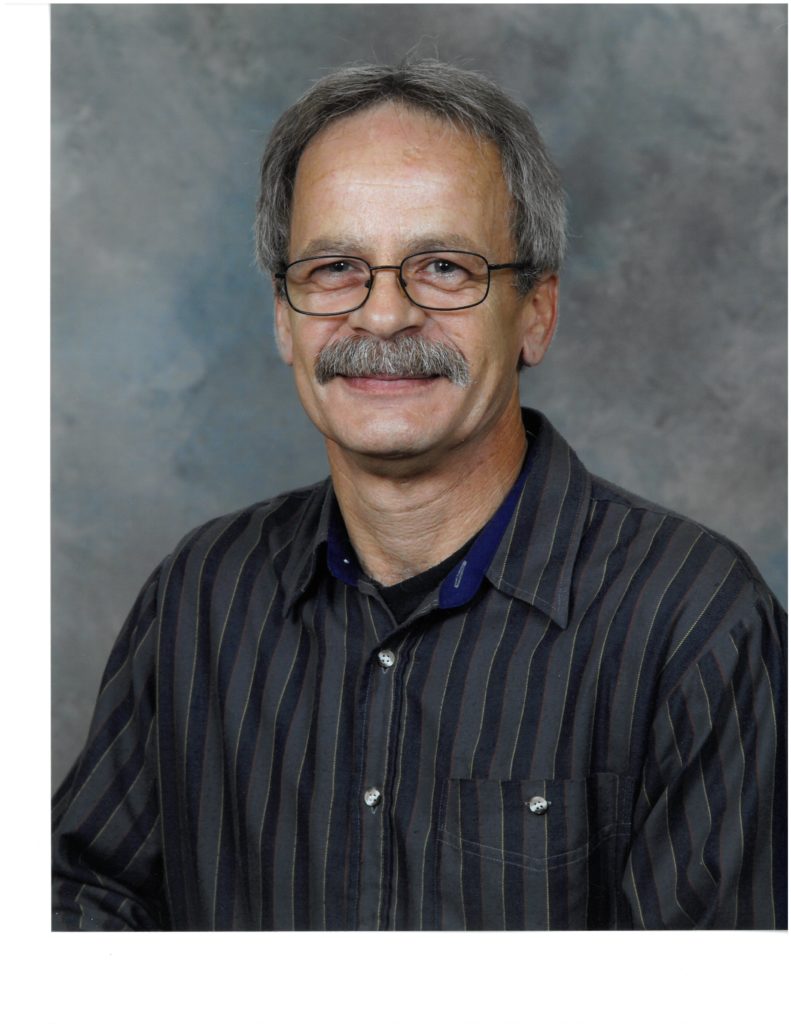
Seeing the Unseen
For most of his life, Al Fielding suffered epileptic seizures. Through two local church communities and an encounter with God, he was healed — and now finds himself on his second term as deacon at Jennings Creek CRC.
(Photo by Tim Fuzail from Pexels)
“I always felt like God had no use for me. I couldn’t read. I couldn’t write. Everything I touched seemed to turn to dust in my hands.”
Al Fielding’s epilepsy began as a 10-month-old infant, after he fell ill with pneumonia and the temporal lobe of his brain was damaged. This important part of the brain helps with processing sensory input, like pain and sounds. It also helps with understanding language, remembering memories, and processing emotions. But the damage wasn’t something that could be seen with the naked eye. Al spent his entire childhood disabled, but he didn’t know it.
“I didn’t know how to explain it,” he says, with a note of exasperation in his voice. “I didn’t know how to talk to a doctor or tell my parents. I felt like an old person at age eight. I remember waking up in the mornings and just holding my head in my hands.”
Al had a lisp for most of his childhood. His sense of smell was severely affected. He fell behind in social development, feeling awkward whenever he interacted with anyone. He was dyslexic and nearly illiterate. By the time he was 11, he had fallen three grades behind his peers.
Al’s parents didn’t attend church, so his grandparents were his introduction to Jesus. He went to church sporadically as a child. “But I was asking myself, how can there be a loving God?” he says. “I didn’t feel like he had any use for me.” For this reason, Al made a conscious choice to completely turn away from God at age 8.
The seizures stayed with Al through his entire time as a young adult. For decades, Al was afflicted with terrible nighttime convulsions — shaking until he awoke – scared, sweating and hurt. “It was a nocturnal disorder, so I only had seizures at night,” he says. “It was something that went unnoticed. Even today I don’t sleep well. I felt like I was wandering in the desert.”
He lost his driver’s license on three separate occasions. In a span of three years, he spent 24 months unable to work. Many of his teeth broke. And the medications he was on made him feel more sick, rather than better.
Yet through all of this pain and suffering, God was still at work.
Scooped Up Off the Street
In the 90s, Al worked at the General Motors plant in Oshawa, where he helped assemble cars. Even though he had a job, he was bankrupt in more ways than one — one of the many effects of his epilepsy. One of his coworkers was a gentleman named Tim Dykstra, who attended Zion Christian Reformed Church.
Tim and his wife brought Al with them to church, where he met other churchgoers. “I saw Tim everyday at work,” Al shares, “and he offered me nothing but encouragement. He basically scooped me up off of the street and introduced me to a whole bunch of people.”
These people supported Al, who lived alone, in many ways — whether through a phone call to check in on how he was doing, or offering to take him to doctor’s appointments or the grocery store. They journeyed with him and walked alongside him throughout his illness, continuously praying for his healing.
“They had my back in so many ways for those 8 or 10 years,” he says, referring to the decade when his seizures were at their absolute worst. “It’s almost indescribable. The people of Zion carried me through the darkest time of my life.”
Whether the analogy is wandering the desert or fumbling through the darkness, Al’s misery and torment were intense. He stopping turning away from God, but was still angry with Him. Many nights were spent on his knees, begging for relief.
Then came a turning point. In the summer of 1999, Al was hospitalized for a second time with a severe seizure. It was there, lying in a hospital bed, near the brink of death and at one of the lowest points in his life, that he had an encounter with God that completely transformed his life.
A Light in the Darkness
Al remembers very little from this time period, but he does remember feeling God’s presence. “I saw what I thought to be the face of God,” he says. “You hear people talk about people feeling the outstretched hand of God, and I experienced that… [it was] reaching down to me, giving me the choice of giving up on this life and joining Him in the next.” While incredible, the experience was also frightening.
Al was assigned a new neurologist who changed everything. He was given different medication that really started to help. The seizures lessened.
At age 32, Al was finally diagnosed with epilepsy. Despite this, he spent the next 6 years in isolation, overwhelmed and unsure of what to do. Yet something had shifted; after this encounter, God somehow gave him the faith to believe in his healing. What’s more, Al had hope again. And with that hope came a desire to praise God — and join a church community.
Finding Purpose as a Deacon

At age 38, as his healing kept on its upward trend, Al decided to approach the local church community — Jennings Creek CRC.
“In 2006, I reached out to Jennings Creek,” he says. “I spoke to the pastor there and told him I was lost and hurting and needed God in my life again.” It wasn’t long before Al started attending. Soon after, he got involved and he’s now on his second term as a deacon.
“For some reason, I was spared,” he says, referring to his time in the hospital. “I had a purpose.” He believes that purpose is to bring understanding to people about what it’s like to live with a condition like epilepsy. Living and dealing with an unseen disability like epilepsy for most of his life has only increased Al’s sense of compassion — and when to tune into what the Spirit might be saying. This has helped Al in his role as a deacon immensely.
“You don’t know what another person’s been through unless you walk in their shoes. Only God knows what another person has been through in their life. I have something that has a name on it, but just because someone else doesn’t have a name for their struggle doesn’t mean that theirs is any less than mine.”
His advice for other deacons? “Try to see the unseen,” he says. “It doesn’t have to be a medical disability. We put so much effort into catering to people with visible disabilities, but we [sometimes] forget about people with unseen disabilities. You’d never guess in a million years that I have a life-threatening disorder. More should be done and more can be done to change that narrative, even if it’s through discussion.”
In summary, Al would tell deacons to trust in the Lord, pray unceasingly, to not be afraid to reach out to someone who you think might be suffering, and always practice compassion.
Through the incredible spiritual and physical transformation Al has gone through, everything changed. He went from being illiterate, dyslexic, socially-isolated and near the brink of death to coming alive in Christ. He has also been seizure-free since 1999. “It was through the encouragement and prayers of others that this miracle finally happened for me,” Al shares joyfully.
Need Some Help?
Disability Concerns a bold vision for the church: a place where everyone belongs, everyone serves. As a Deacon in your church, you are called to lead and equip the church to awaken compassion, demonstrate mercy, seek justice, and collaborate with God’s Spirit for the transformation of persons and communities. This hefty calling includes EVERY single person on your congregation. Disability Concerns has a network of Regional Disability Advocates who are eager to assist your church. Find out more here.



